Occupational Therapy

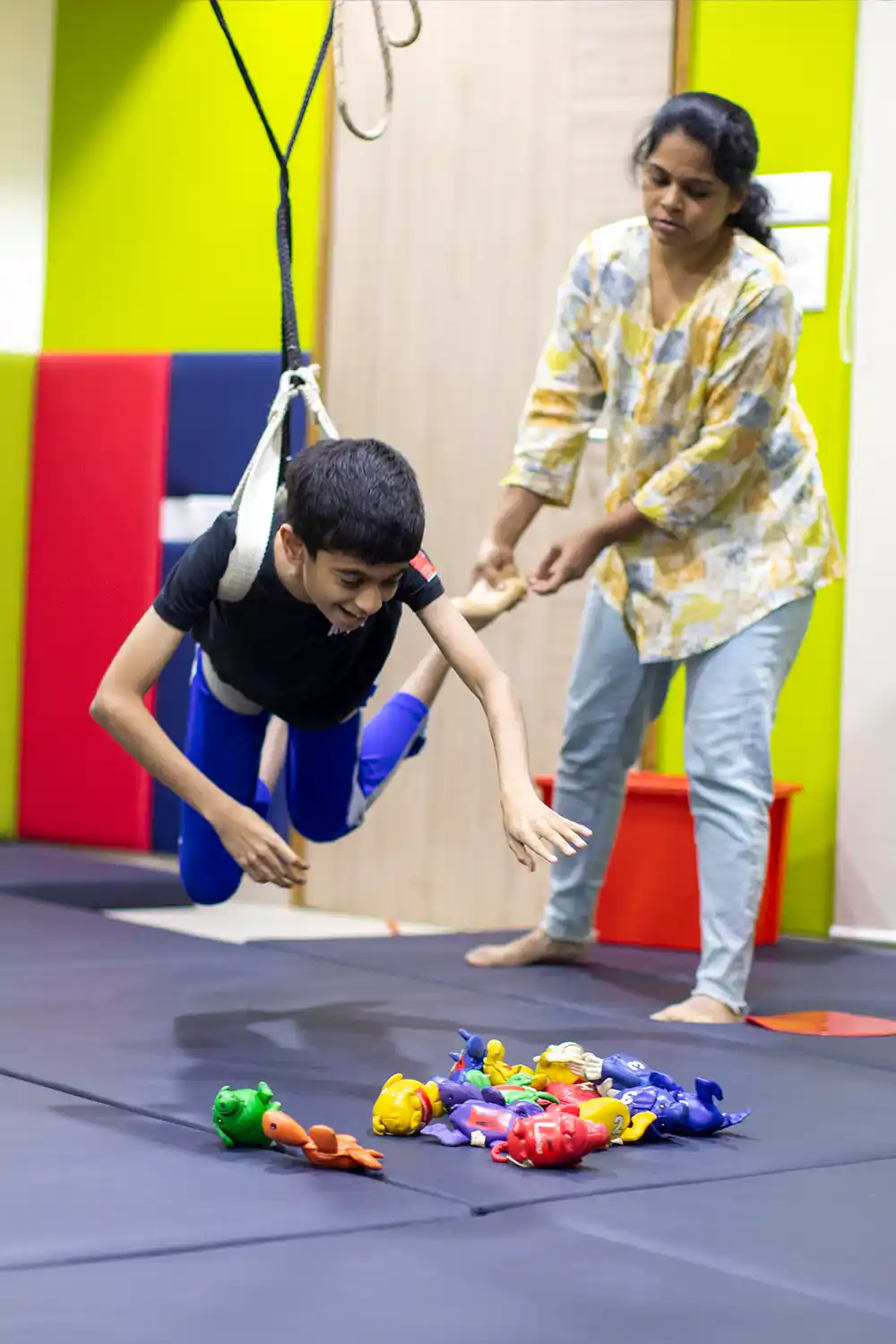
In order to engage optimally with the environment, our brain needs to be working in coherence with our body and senses. It is through this collaboration that we make sense of the world around us, learn, build meaningful relationships, engage with peers, and lead purposeful lives. When the sensory motor development is impacted, it can affect various areas in a child’s life. Occupational Therapy addresses these concerns.
Occupational Therapy is a treatment approach that targets areas of sensory motor development such as body awareness, motor planning, motor skills (gross and fine), visual perceptual skills, and activities of daily living. The goal is to aid a child in processing sensory input correctly and transform this into functional engagement and learning.
We support children in meeting their developmental milestones, aid their sensory motor development, and help them participate in age-appropriate play. Furthermore, Occupational Therapy looks at promoting a child’s independence through analysing and collaboratively assessing a child’s skills in their activities of daily living. Our team at TGIC specialises in explicit teaching and in supporting modifications and suggesting accommodations for each child to achieve maximum independence across all areas in their lives.
Explore our services through the visuals below:
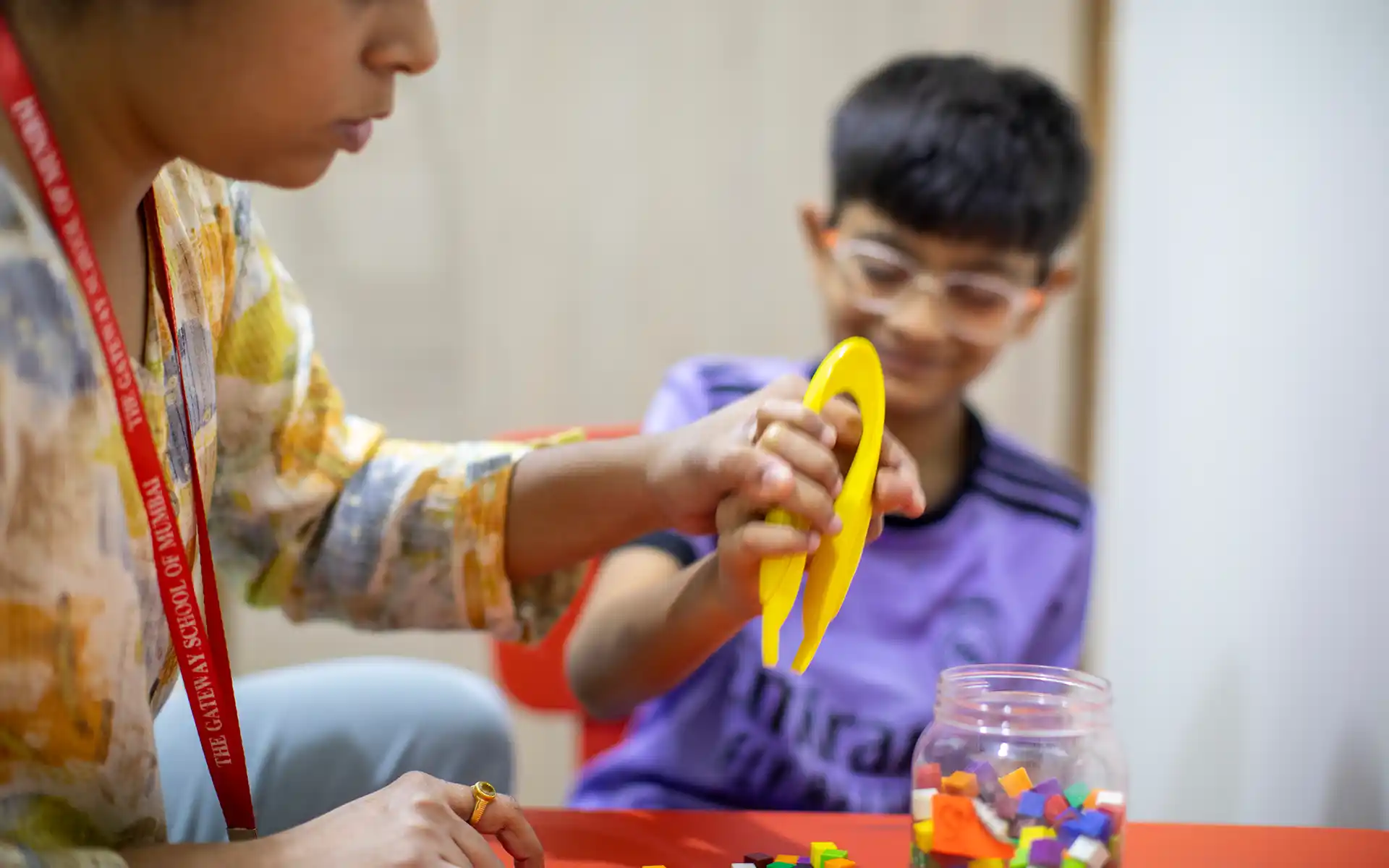
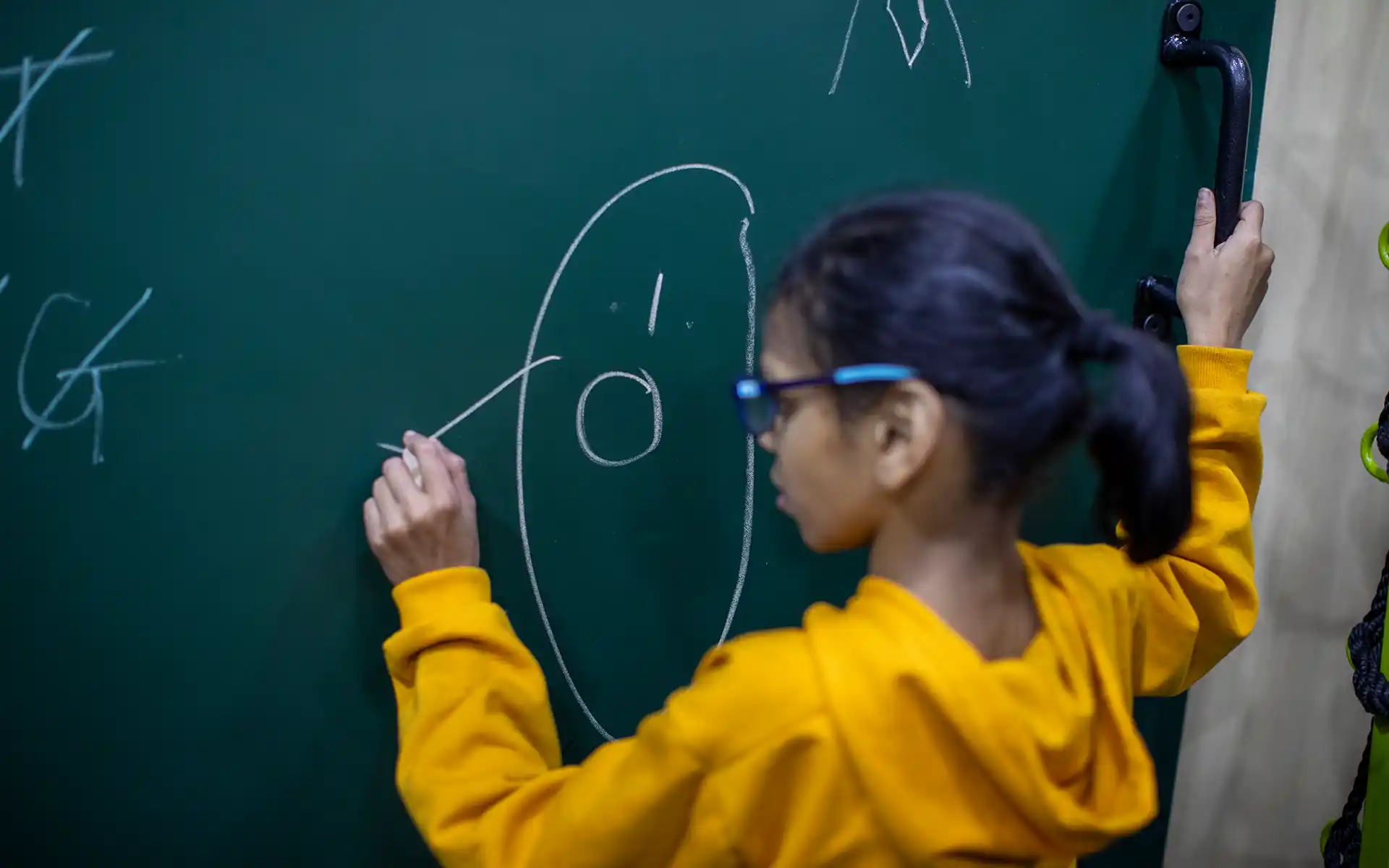
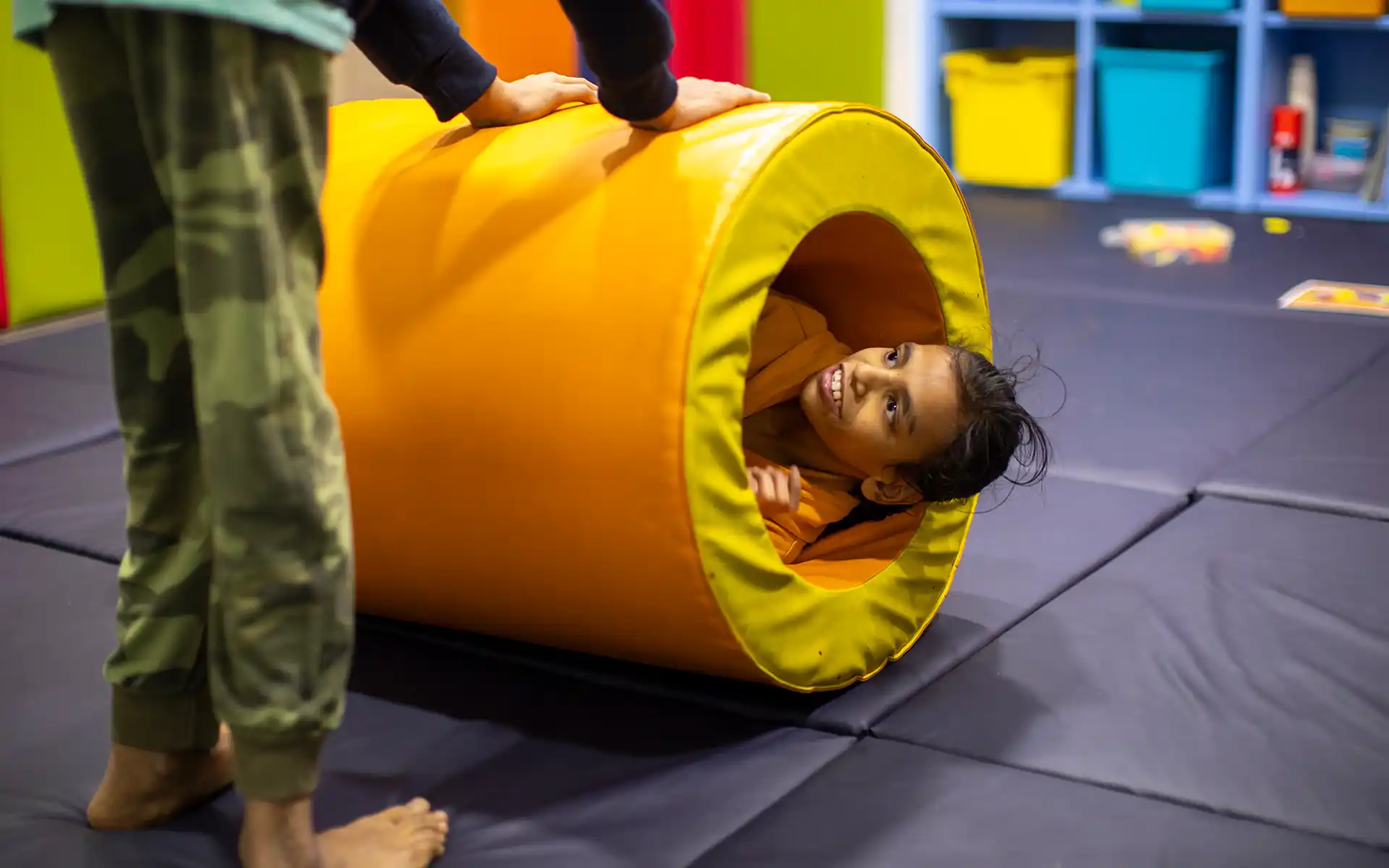
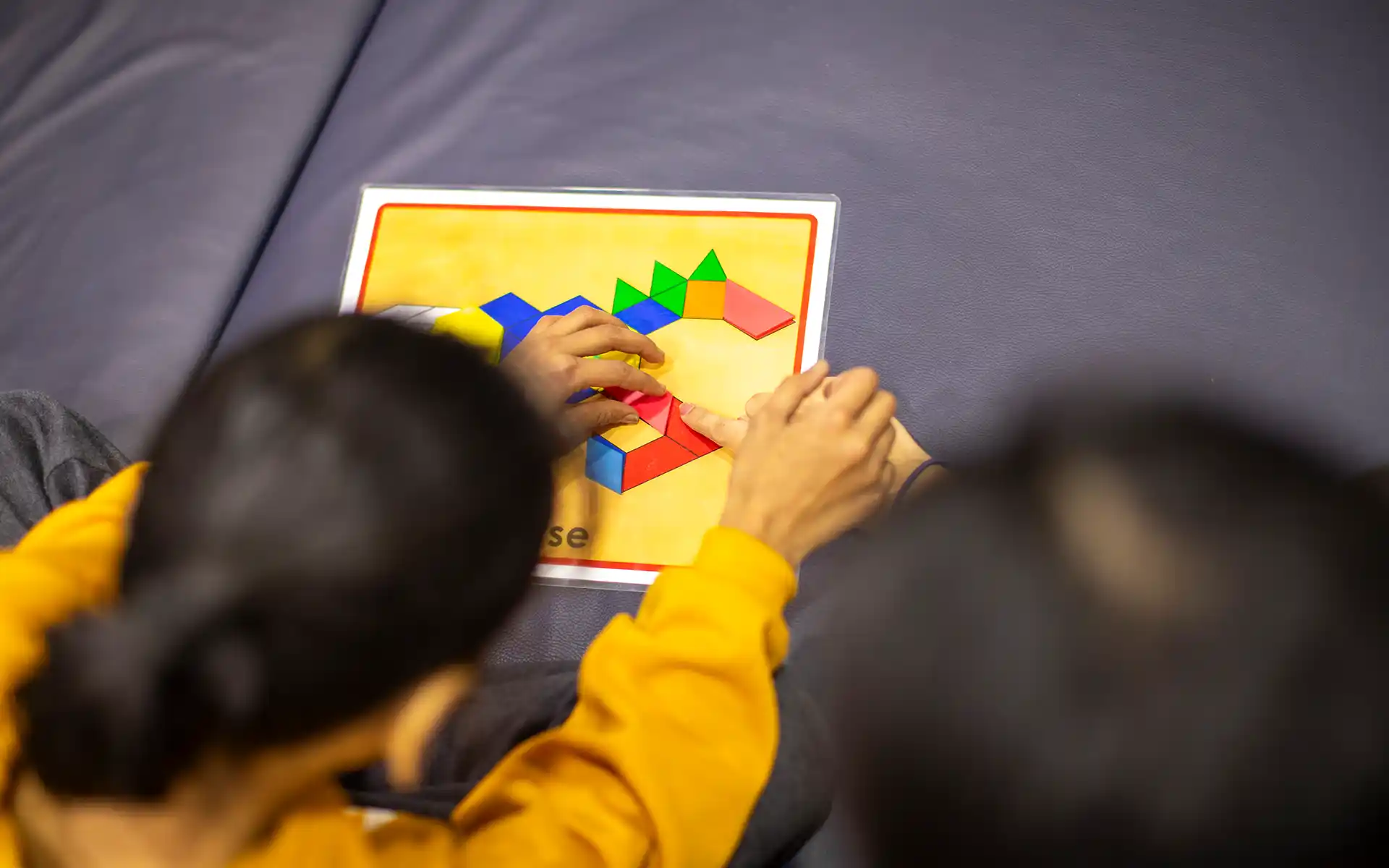
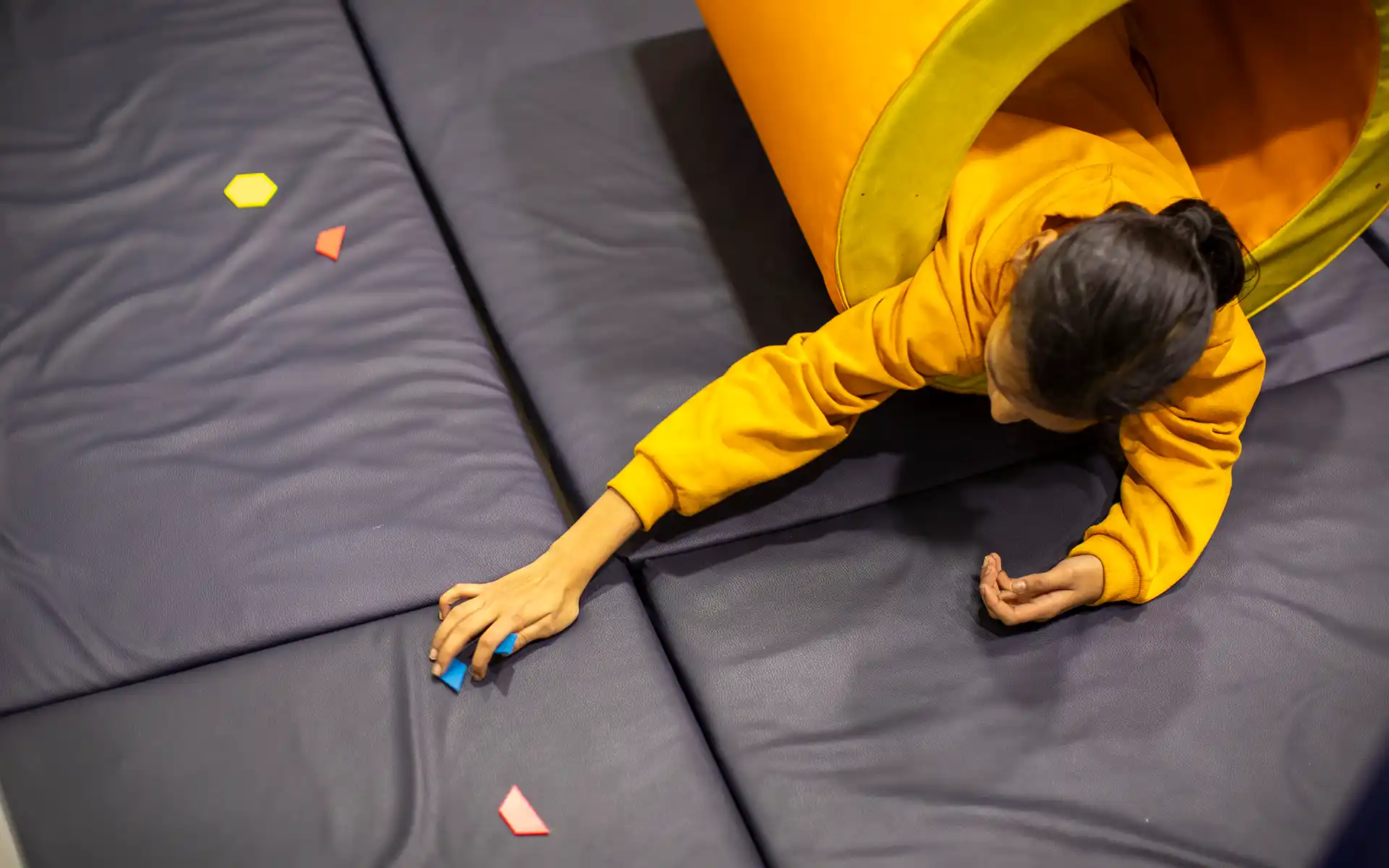
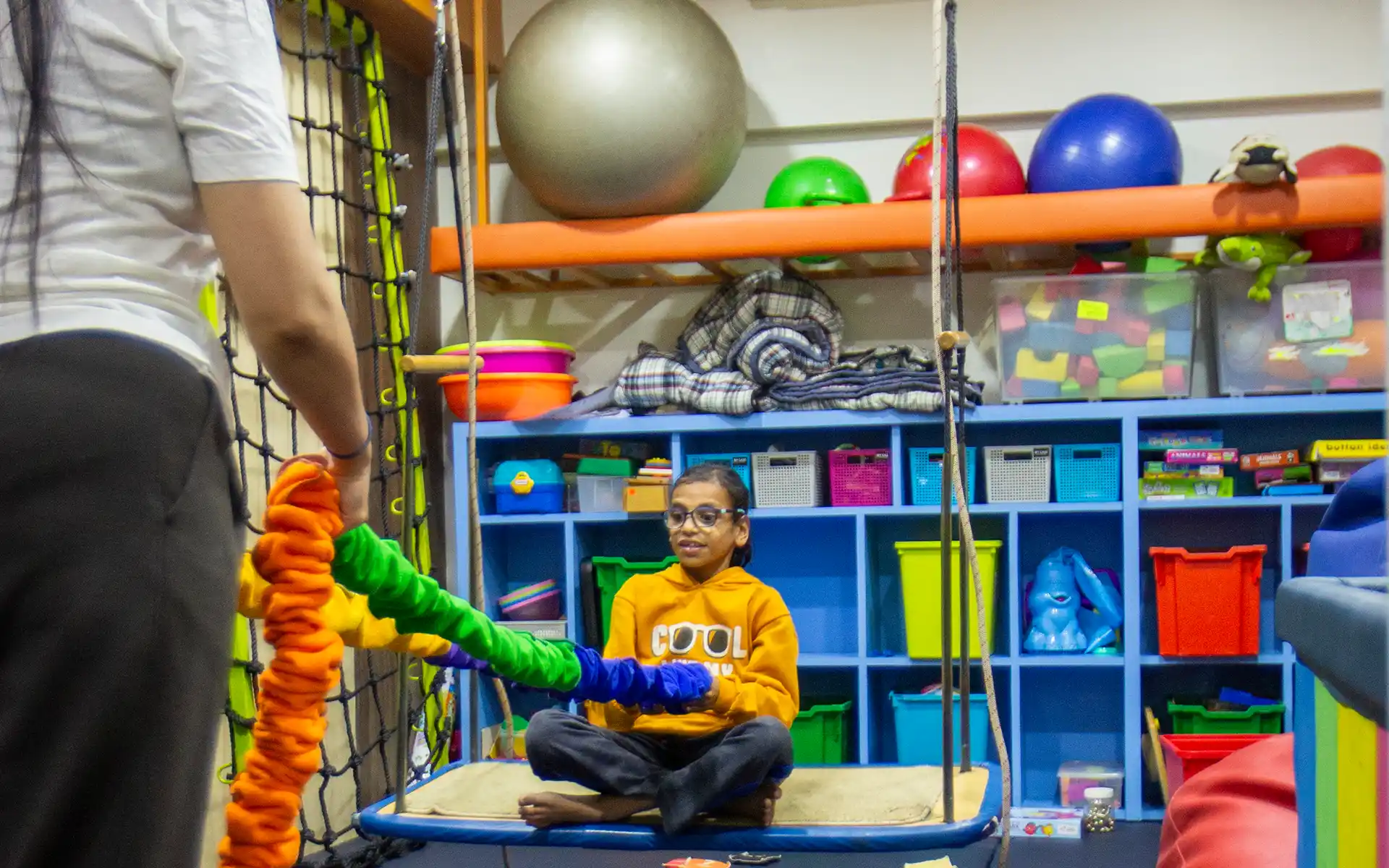



Inspiring potential -
for all


Occupational Therapy is a treatment approach that supports difficulties in sensory motor development. This includes concerns with fine motor skills, gross motor skills, body awareness, visual perceptual skills, and self care skills.
There are several indications that may suggest that your child could benefit from Occupational Therapy. If your child has challenges in the following areas of sensory motor development, then you should consider Occupational Therapy:
1) Fine Motor Skills
- Difficulty holding a writing instrument
- Getting easily tired when writing
- Difficulty using scissors/spoons/fork
- Difficulty in participating in puzzles/construction games/LEGO
- Messy handwriting/drawing/colouring
- Difficulty opening/closing lunch boxes
- Difficulty tying shoelaces
2) Gross Motor Skills
- Slouching on chair while seated
- Difficulty kicking a ball far
- Difficulty imitating dance movements
- Avoidance of sports
- Difficulty with balance and coordination
- Getting tired easily
- Difficulty moving desks/chair
3) Body Awareness
- Bumping into furniture or people when navigating across spaces
- Difficulty imitating movement actions
- Pressing hard on objects or holding items too loosely
- Being clumsy
- Frequently dropping object
4) Visual Perceptual Skills
- Inability to catch a ball
- Losing place on a page when reading
- Difficulty doing puzzles/construction games
- Confusion between d/b/q/p
- Frequently omitting words when reading
- Difficulty finding their belongings especially in a cluttered environment
- Difficulty organising cubby/desk space
- Reversing number/letters when writing
- Difficulty copying from the board
5) Self Care Skills
- Difficulty with fasteners like buttoning/unbuttoning/zippers
- Taking very long to get ready for school
- Difficulty maintaining hygiene
- Being a messy eater
- Difficulty tying shoelaces
- Difficulty with keeping their room organised and clutter-free
Occupational Therapy can be beneficial for children of various ages who experience challenges in sensory motor development. Therapists tailor the approach to meet the individual needs and developmental stage of each child, ensuring that the therapy is both effective and engaging.




